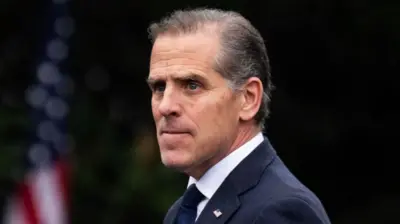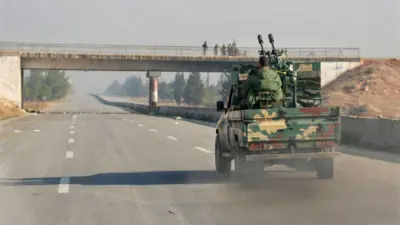We've updated our Privacy and Cookies Policy
We've made some important changes to our Privacy and Cookies Policy and we want you to know what this means for you and your data.
Syria decision looms for May
Image source, EPA
- Author, James Landale
- Role, Diplomatic correspondent
So is Britain hesitating before joining the United States and France in launching air strikes against Syrian targets?
Senior figures in Downing Street deny this adamantly. But there are some voices in Whitehall who believe Theresa May might be displaying her usual caution.
They reckon the prime minister is worried by the possible political fallout of taking military action without parliamentary approval. MPs do not return from their Easter break until next Monday.
Some military folk at the Ministry of Defence, in particular, are poised to deploy their resources and are frustrated they are being made to wait. This does not matter so much for the Tornados at RAF Akrotiri in Cyprus which can be scrambled relatively quickly.
It does matter if the UK wants to dispatch a submarine carrying Tomahawk cruise missiles. I am told that the UK does not currently have a submarine in the Mediterranean and it would take about a week to get one into position.
These same critics look at the fact that President Macron of France spoke twice to Donald Trump before the US president managed to squeeze in a call with the prime minister and they conclude that Mrs May is off the pace.
But this is not the whole story. Officials say the delay in the Trump phonecall was driven partly by Mrs May spending most of Monday travelling in Scandinavia and arriving home late.
Mr Trump spoke to Mr Macron quickly because the French president initiated the first call himself. As one diplomat told me, Monsieur Macron is doing everything he can to become Europe's "Trump whisperer-in-chief" and he has a warmer relationship with the president than Mrs May.
People in Downing Street insist the prime minister is not dragging her feet and trying to delay military action. And most senior insiders and ministers I have spoken to agree with that.
Image source, Getty Images
But some do say the PM is taking her time. On one level, they say this is just her character, to be cautious and methodical, to play it by the book. She wants to work out what is in the UK national interest, to understand what other countries want to achieve, to assess all the options and consequences
And yes, that involves assessing the risk of losing a vote in Parliament on this. The scars of David Cameron's defeat over proposed military action in Syria in 2013 have not entirely healed. This will matter if any military action is not a one-off but a sustained strategy that envisages air strikes the next time Syria drops chemical weapons and the next.
Crucially, I am told that Mrs May also wants to make sure that the case against Syria is as comprehensive as possible. She wants as much information as possible about the suspected chemical attack on Douma - above all, so she can say who was responsible.
She wants to make sure she has her ducks and arguments in a row for the potential political flak she could face. The discussions are similar to those over the Salisbury nerve agent attack, namely that Mrs May wants to be able to stand up in Parliament and say there is "no plausible alternative" to Syria being responsible.
There was a distinct note of caution in the official Downing Street account of the May/Trump phone call. This spoke of "reports" of Syrian chemical weapons attacks which were evidence of President Assad's brutality "if confirmed".
There are signs that the US and the French are also taking their time. Monsieur Macron seems keen to act but even he spoke yesterday of a decision "within days". French sources tell me they expect another Macron/Trump call "in the next 48 hours".
Some sources suggest that if Mr Trump wishes to mount a sustained military operation, more comprehensive than the one-off strike a year ago, then the US military will have to deploy more ships and submarines to the region. And that will take some time. There is also the added complication of how Russia and Iran might respond if their own forces were hit by any allied strikes.
The international chemical weapons watchdog, the OPCW, has added an extra complication to the mix by announcing that it hopes shortly to deploy its existing 'fact finding team' to Douma if it is allowed in by the Russians and the Syrians. Officials agree that the optics of allied air strikes taking place while international inspectors were on the ground would not be good.
So is Mrs May resisting military action? It does not appear so and it is firmly denied by Downing Street. But is she avoiding a rush to war without thinking through the consequences? That appears closer to the mark.
The risk is that her caution could be portrayed as indecision. But she may conclude, eventually, that the risk of refusing to take part in military action is probably the greater. The Salisbury attack and the widespread support from much of the international community has placed the burden of leadership on Britain's shoulders.
Some ministers and officials believe it would be seen as churlish and ungrateful for the UK to withhold military support from allies only weeks after more than 25 nations followed the UK lead and expelled Russian diplomats. Some admit that for Britain to stand on the sidelines while French and US jets attack Syrian targets would leave the government's 'global Britain' strategy in tatters.
So Mrs May is between a rock and a hard place. But sometime in the next few days, she will have to decide.
Top Stories
More to explore
Most read
Content is not available








